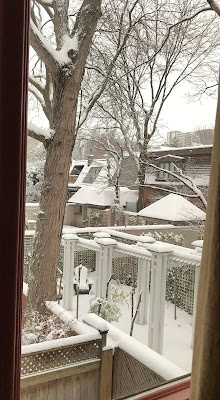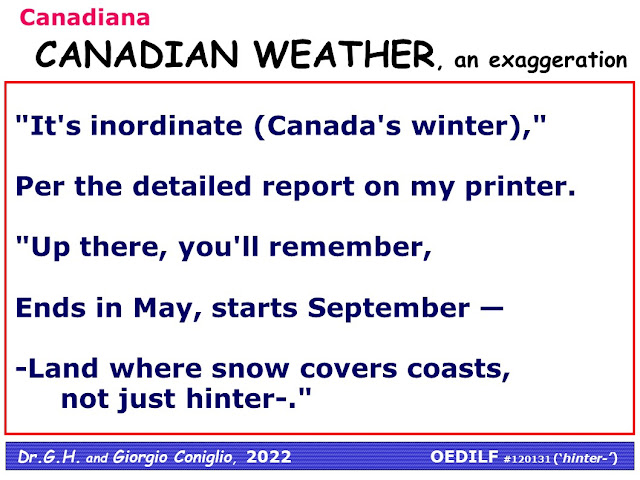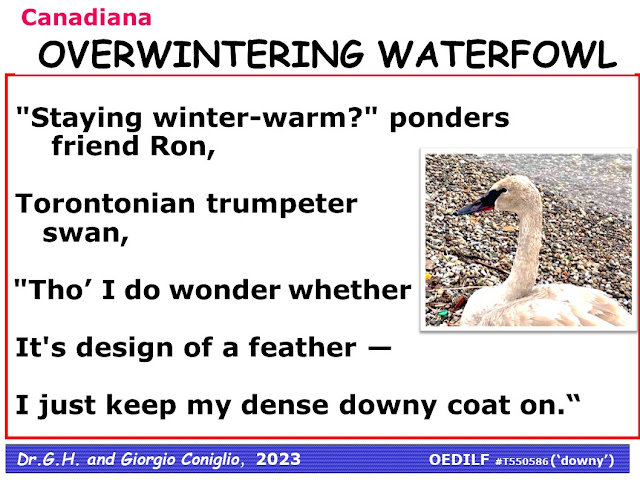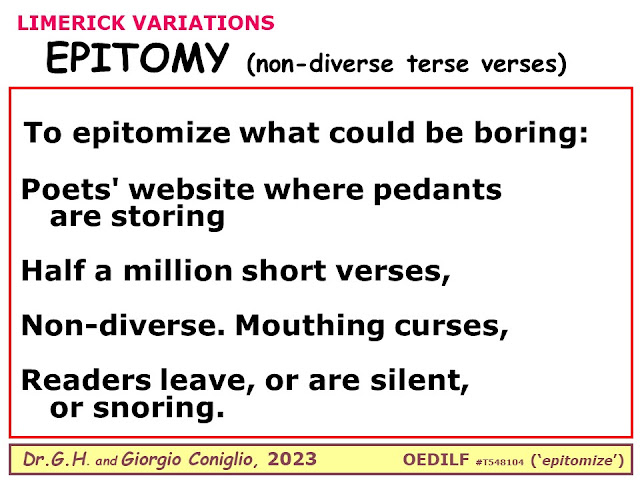Since 2016 Giorgio Coniglio, registered pseudonym and editor-in-chief, has been bundling collections of POETRY, WORDPLAY and PHOTOGRAPHY, seasoned with humour and parody, with the sole aim of entertaining YOU with presentations at the rate of 5 times per month. The related blog "DAILY ILLUSTRATED NONSENSE" sends out items from these collections in somewhat random order one-at-a-time.
Tuesday, 25 May 2021
Thursday, 20 May 2021
Healing Political Divisiveness: The ANAGRAM SISTER-CITY INITIATIVE
PARODY COMPOSED: Giorgio Coniglio, March 2016, revised February, 2017.
EXPLANATORY NOTE: The initial concept for this piece, developed during the buildup to the election of November 2016, highlighted the nonsense of anagrams as a mechanism to defuse the intense partisan animosity that became manifest during that tumultuous period. Unfortunately, following the election, the animosity has continued and even intensified further. Different media sources, viewpoints and responses to developments characterize the 2 populations, which now live in 'alternate realities', and it has become more difficult to sit on the fence (a frequent pose taken by the author).
Consequently, we now propose a mechanism for reintegrating our divided society, and returning to a more balanced equilibrium. Communities might be easily located where the predominant viewpoint reflects one of the '2 solitudes'. Even within these towns, more open-minded citizens could be persuaded to become involved in exchanges with sister-cities that otherwise share some demographic similarities, but who presently seemed to be uncompromisingly devoted to the opposite point-of-view. Here are some initial proposals for pairs of communities which might benefit by such an exchange of viewpoints.
Saturday, 15 May 2021
CANADIANA, part #1 (verse, photos, Scrabble-boards, and misc. nonsense)
Authors' Note: This verse was inspired by a character in a verse by OEDILF chief editor, Chris J. Strolin, who railed against the use of the incorrect term 'Canadian goose'.
In fact, when our protagonist Bruce was insightfully contemplating the introduction of moose into suitable environment in Newfoundland (NEW-found-land), the island was a separate British colony. As railway building had recently opened the island's interior, it was hoped that hunters would be attracted in search of a species in decline in the US and parts of Canada.
In 1904, four eastern moose from New Brunswick (that subspecies is known as Alces alces americana) had been set loose on the island. Ultimately Newfoundland, including its burgeoning population of moose, joined the Canadian confederation in 1949.
The rest is history, eh? Newfoundland now (2023) has the densest population of moose in North America, accounting for 150,000 of the continent's million remaining large ungulates.
The author contends that the summary he received overemphasized the adverse climatic conditions faced by Canadians, the majority of whom live in the more temperate southern portions of the country.
 |
| mid-November in Toronto |
Growing marijuana seems to be a major activity on Vancouver Island, British Columbia, centred in the city of Nanaimo (nuh-NAHY-moh). Exemptions from restrictions on the substance are given for certain medical conditions, termed compassionate use; however, the criteria appear loosely applied, and overlapping recreational and medicinal use of the substance underlies the region's laid-back attitude.
It is unlikely that Nanaimo will successfully challenge the dominance in limericks currently held by Nantucket. The island of Nantucket has been the setting for a number of limericks; the most famous clean one deals with a crotchety old man whose daughter rips off his poorly hidden cash.
Monday, 10 May 2021
Immersible Bird-Verse: WATERFOWL #4 (P to S)
PARODY COMPOSED: Dr. G.H. and Giorgio Coniglio (registered pseudonym), 2019/2020, a continuation of prior blogposts about waterfowl.
Readers who enjoy poetry describing the natural world around them with illustrative images and informative text, might also enjoy these previous blog-offerings, each a collection of eight poems on the wider topic...
Verses about Waterfowl, June '19
Verses about Waterfowl (part #2), July '19
Authors' Note:
fress is a loanword verb from either German or Yiddish implying eating heartily or snacking frequently.
delicatessen has been applied to both high-end retail food stores selling unusual and imported prepared foods, and to restaurants preparing German, Jewish or other ethnic cuisine (frequently, the two functions are combined). It may also refer to the products purchased in these outlets.
Sushi is not among the expected foods in such an establishment, so the analogy to a pelicatessen for waterfowl has been unexplored until now. At least in Canadian official documents, for the sake of gender-neutrality, fishermen are referred to as fishers.
After initially using this neologism (word-creation) as a descriptor on the blog "Edifying Nonsense", and misconstruing it as his personal invention, the author became aware, via the internet, that there is a restaurant located at a resort on Bald Head Island, North Carolina with that name. Although that fact is of interest, it is of limited relevance. Seabirds are apparently not served at the establishment, either as customers, or as menu-fare.
Wednesday, 5 May 2021
Progress in Poetry: LIMERICK VARIATIONS
Epitomy of boredom















































